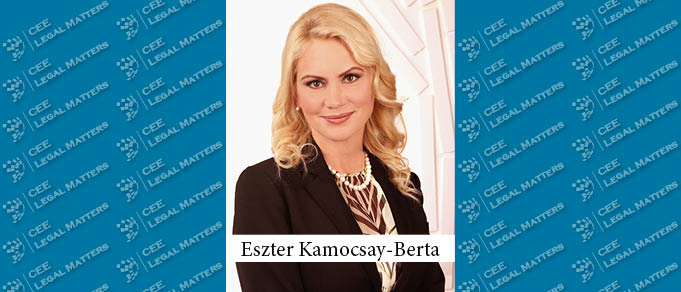Deloitte Legal Hungary Head of Banking, Finance, and Capital Markets Linda Al Sallami has recently been appointed a Partner at the firm, effective September 1, 2023.
2023 Is a Late Bloomer in Hungary: A Buzz Interview with Agnes Bejo of Jalsovszky
From the deceptive quiet of early 2023 to a summer bustling with legal reforms and taxing challenges, Jalsovszky Partner Agnes Bejo sheds light on pivotal developments in Hungary ranging from the EU-mandated whistleblowing system to changes in the trust system, environmental responsibilities, and the shifting investment climate in the country.
New Hungarian Cybersecurity Laws Introduce Important Obligations – The Countdown Begins
From 1 January 2024, companies operating in Hungary will face new significant cyber security related obligations under the Hungarian legislation implementing the EU NIS2 Directive. In this short article, we describe which companies will be affected by the new regulation and what are the most important tasks in the new year.
CMS and Baker McKenzie Advise on Refinancing of MOL Group's 2017 EUR 750 Million Multicurrency Revolving Credit Facility
CMS has advised coordinator and facility agent Raiffeisen Banking Group on the EUR 600 million nine-banking-group club multicurrency revolving credit facility for the MOL Group. Baker McKenzie advised the MOL Group on the deal. CMS also acted as transaction counsel on MOL's JPY 14.6 billion bilateral revolving credit facility and its EUR 50 million bilateral EUR/CNY revolving credit facility.
Mandatory Deposit Refund System starts in Hungary in 2024
Mandatory Deposit Refund System (DSR) comes into effect as of 1 January 2024 in Hungary. The newly introduced legislation clarifies the key points of the system and the specific obligation of the parties concerned.
30 Days for Hungarian SMEs to Create a Whistleblowing System
The Hungarian Whistleblower Protection Act has entered into force this July. While bigger companies have to operate the internal whistleblowing system since the above date, medium sized businesses (50-250 employees) were given a prolonged period until the 17th of December 2023 to implement the reporting channel. Since the deadline is approaching, we summarize how Hungarian SMEs can comply with the Act.
Lakatos Koves and Partners Advises Nova Post on Hungarian Market Entry
Lakatos Koves and Partners has advised Ukrainian postal and courier company Nova Post on corporate and regulatory aspects of its Hungarian market entry and the opening of its first Hungarian branch.
Significant Changes Expected to Hungary's Online Accommodation Booking Market
The Hungarian Competition Authority (HCA) recently published a draft report on its findings based on an accelerated sector inquiry into Hungary's online accommodation booking market. The sector inquiry was launched on 24 August 2023 after the HCA received numerous complaints during the peak summer holiday season about the practices of Booking.com, a key market player, for withholding payments to accommodation providers.
Baker McKenzie and DLA Piper Advise on Deutsche Telekom's HQ Lease in Budapest
Baker McKenzie has advised Deutsche Telekom IT Solutions on its headquarters relocation to the Hungarian Telekom building in Budapest. DLA Piper advised developer WING on the lease.
Novelties in Hungarian Competition Law - 2023
Some significant amendments to the Hungarian Competition Act have entered into force. The Hungarian Competition Authority (HCA) has been very active recently in various sectors. This summary briefly describes the most important changes. Some of the changes require an update to the compliance materials for Hungary.
Hungary: Does the Call of a Bank Guarantee Relieve the Beneficiary from the Settlement of Accounts?
In a recent decision, the Hungarian Supreme Court had to decide in case, where the amount called by the beneficiary of the guarantee was more than the actual costs incurred. Does call on the bank guarantee shall be proportionate to the costs actually incurred? Shall the beneficiary settle accounts with the debtor after the bank guarantee has been called?
Changes in the Payment Order Procedure
The rules on the order for payment order procedure have changed significantly as of 1 October 2023. Many of the changes are related to the simplification and digitalisation of the procedure.
WKB Advises Orkla on Sale of 40% Stake in Orkla Food Ingredients to Rhone
WKB Lawyers, working alongside Norway-based Advokatfirmaet Wiersholm, has advised Orkla on the sale of a 40% stake in Orkla Food Ingredients to Rhone. Norway's Thommessen reportedly advised Rhone.
Gyorgy Baksay-Nagy Appointed Head of Intellectual Property at OPL Gunnercooke
Attorney at Law Gyorgy Baksay-Nagy has been appointed as the Head of the Intellectual Property practice group at OPL Gunnercooke.
Balazs Tomaj Joins Kinstellar as Senior Counsel
Former MVM Deputy CEO Balazs Tomaj has joined Kinstellar in Budapest as Senior Counsel.
New Hungarian Construction Act Under Way – What Will Be The Main Changes?
The draft of the new Hungarian Construction Act was recently published for public consultation. Although the act only lays down the general rules, and details will be laid down in other regulations that are not yet known, several new features can already be seen in the draft. In our short article we summarise a few important changes.
Can the Conduct After the Conclusion of the Contract be Considered When Assessing Sham Contracting?
When we consider the validity of a contract on the basis of the parties' will, it is usually the will at the time of the conclusion of the contract that is relevant. In a recent decision, however, the Supreme Court of Hungary has pointed out that in the case of a long-lasting legal relationship, such as an employment relationship, the parties' actions after the conclusion of the contract in order to perform it must also be taken into account when determining the contractual intention.
The Law on Personal Income Tax May Change in Hungary
Presently, a legislative proposal has been placed on the agenda, focusing on measures aimed at streamlining governmental operations. This comprehensive proposal encompasses various modifications, one of which pertains to an amendment to the personal income tax act (“PIT Act”).




















